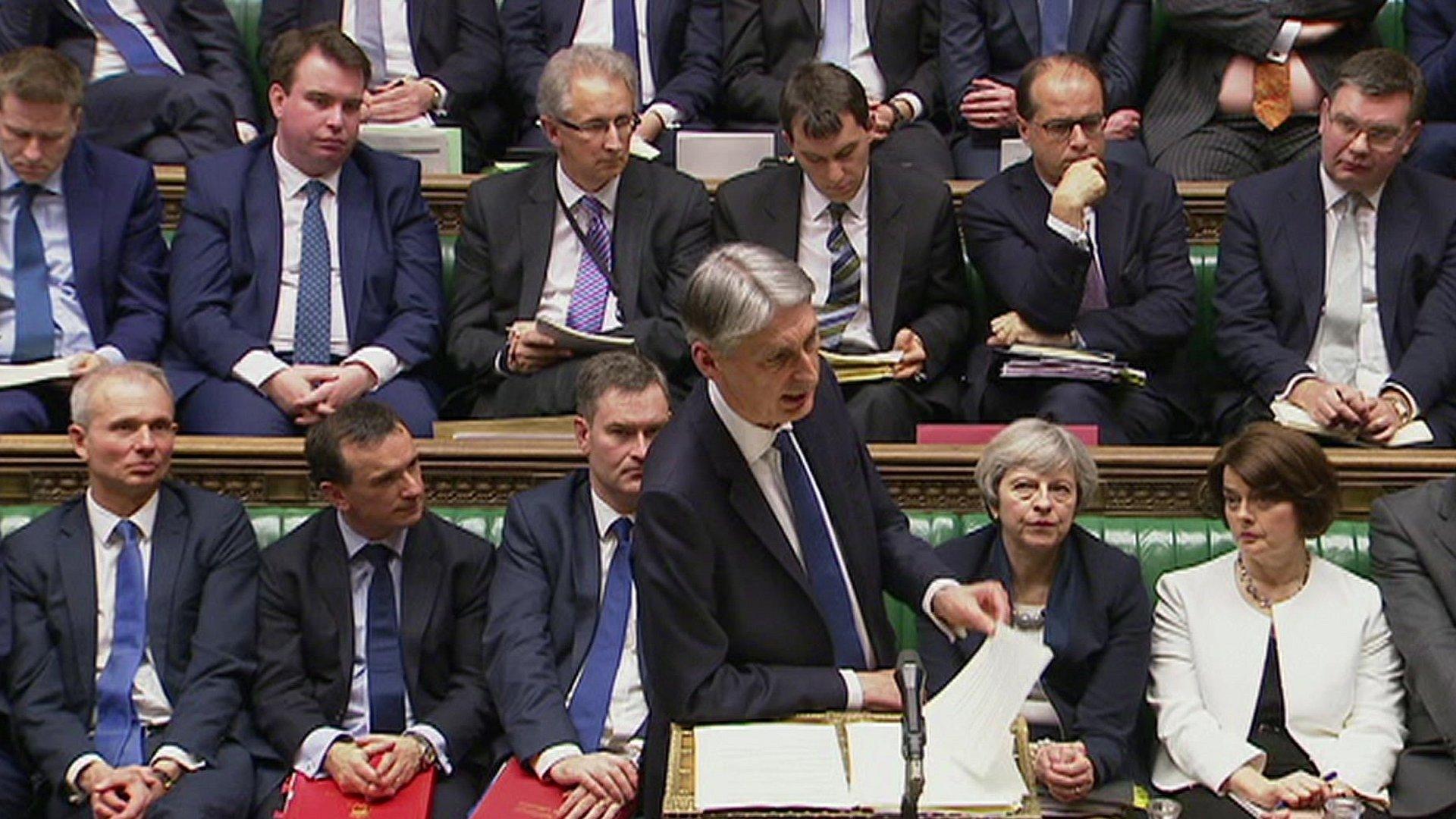Reality Check: Do 60% benefit from the changes in National Insurance?
- Published
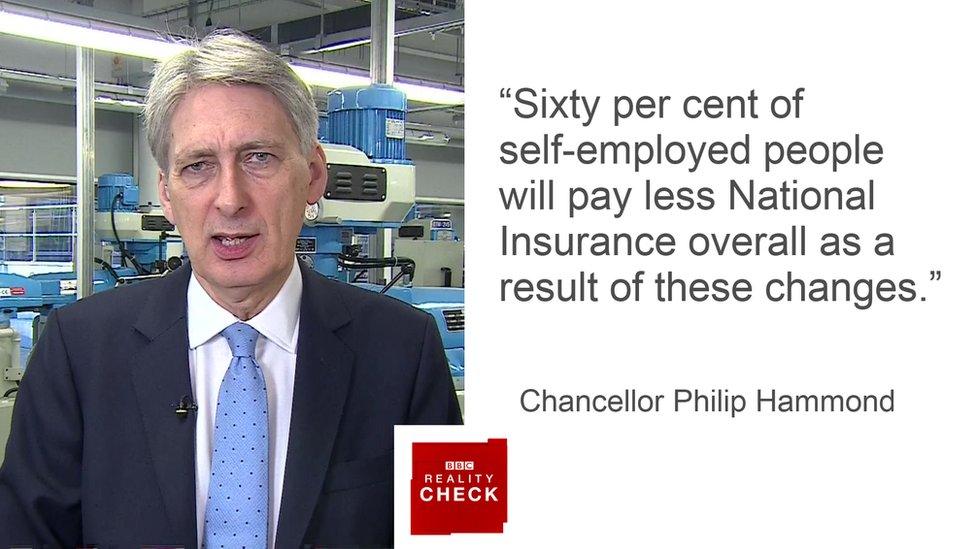
The claim: 60% of self-employed people will pay less National Insurance as a result of these changes.
Reality Check verdict: 60% of people according to Treasury estimates will pay less, but only if you combine the abolition of Class 2 National Insurance contributions, which was announced in 2016, with the increase in Class 4 contributions announced on Wednesday. Nobody will pay less National Insurance as a result of the changes announced in Wednesday's Budget alone.
Chancellor of the Exchequer Philip Hammond was on the BBC's Breakfast programme on Thursday, talking about the changes made in his Budget.
He said that 60% of self-employed people would pay less National Insurance as a result of the changes.
What changed on Wednesday was that in April 2018, Class 4 National Insurance contributions will rise from 9% of profits earned between £8,060 and £43,000 a year, to 10%.
The following year it will rise again to 11%.
National Insurance of 2% will still be payable on earnings above £43,000.
George Osborne announced the previous year that Class 2 National Insurance contributions, which are paid at a flat rate of £2.80 a week by self-employed people earning profits of more than £5,965 a year, would be abolished from April 2018.
Mr Hammond was keen to combine the effects of these two changes, describing the net effect as raising £145m a year by 2020-21.
The Budget documents, external predict that just raising Class 4 contributions will raise £495m in 2020-21, with the measure raising a total of just over £2bn over the next five years.
If you look at the two changes together, the Treasury says that 2.6 million people will be better off by an average of £115 a year, while 1.6 million people will lose out by an average of £240 a year.
The latest labour market figures, external estimated that there were a total of 4.8 million self-employed workers, but some of them will be earning less than £5,965 so will be neither better off nor worse off, which means the total is feasible.
From those figures, it appears that 60% of self-employed people could be paying less in National Insurance.
But it would be a bit surprising if all self-employed people looked at it like that.
They were expecting a tax cut in April next year, and as a result of this Budget, 40% of them will now face a tax increase instead.
It will be the higher-earning, self-employed people who lose out.
The Institute for Fiscal studies has worked out that anyone earning profits of less than £15,570 a year will be better off, while the maximum loss will be £589 a year.
UPDATE 15 March: More figures emerged in the following days and the policy was reversed a week later. Find more details in this Reality Check.



- Published9 March 2017
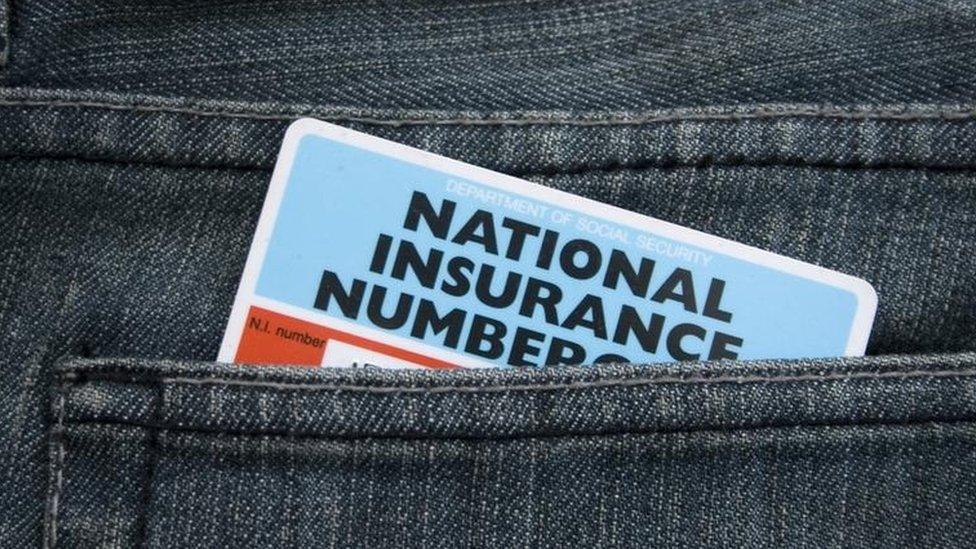
- Published8 March 2017
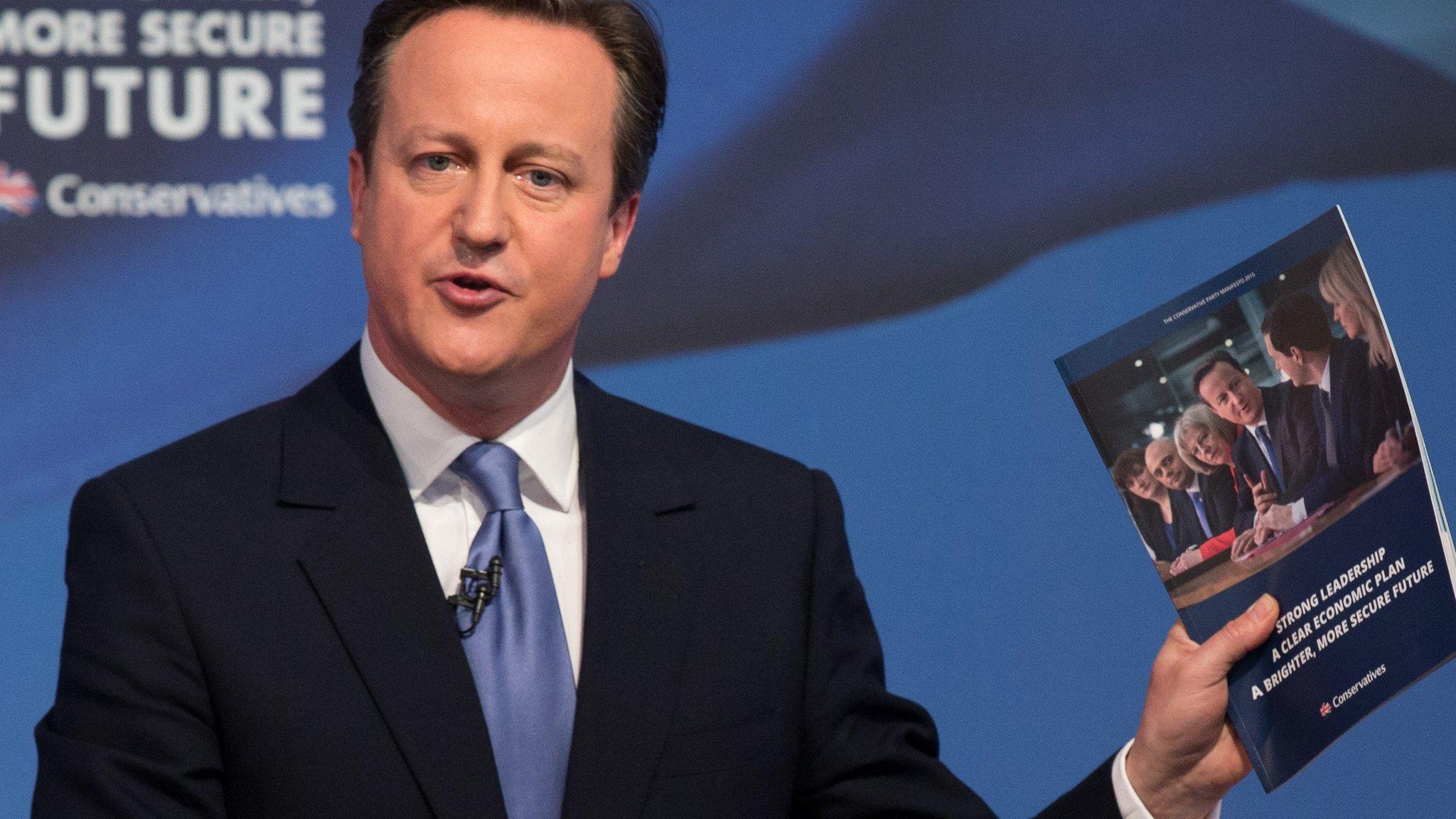
- Published9 March 2017
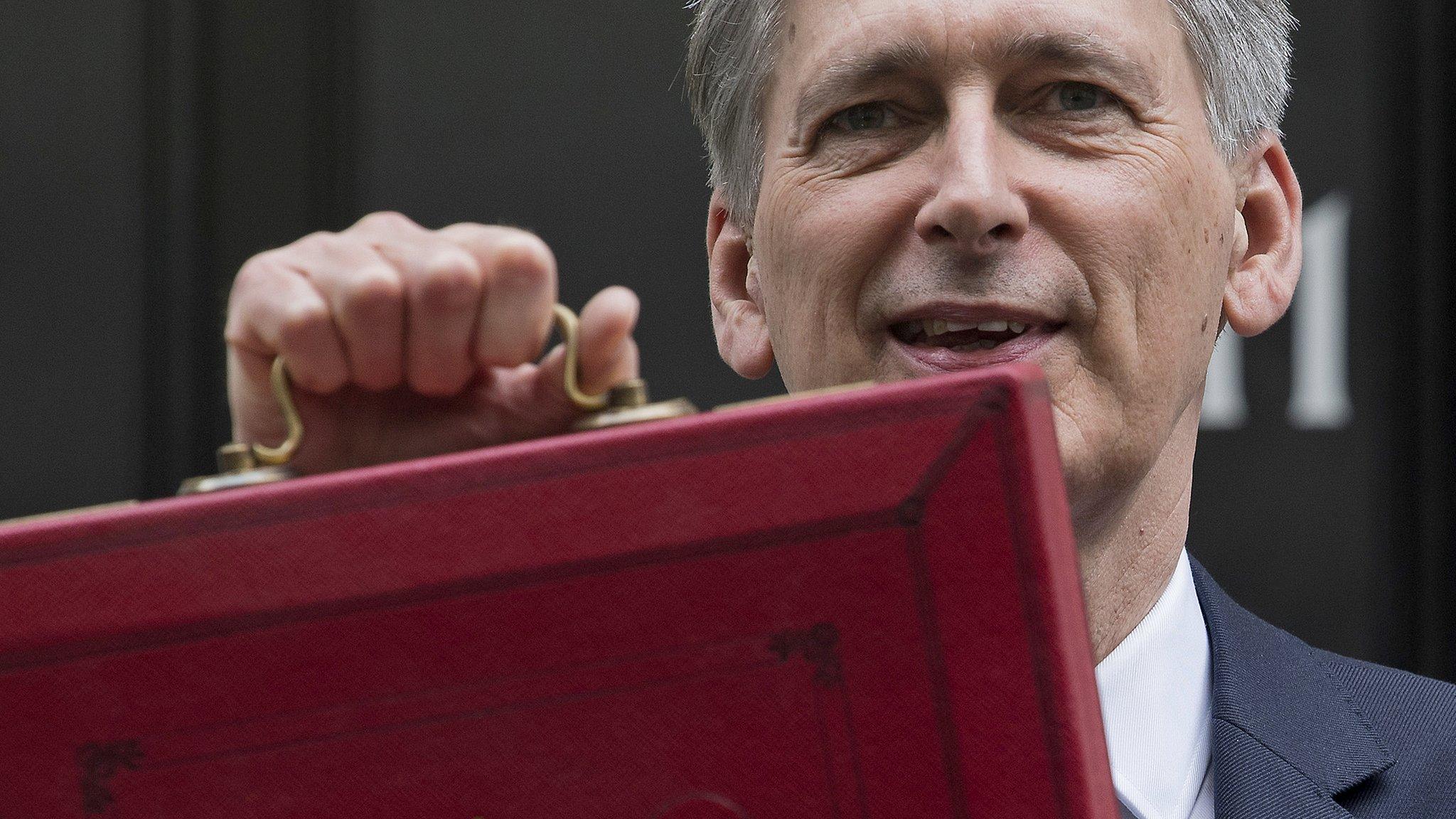
- Published9 March 2017
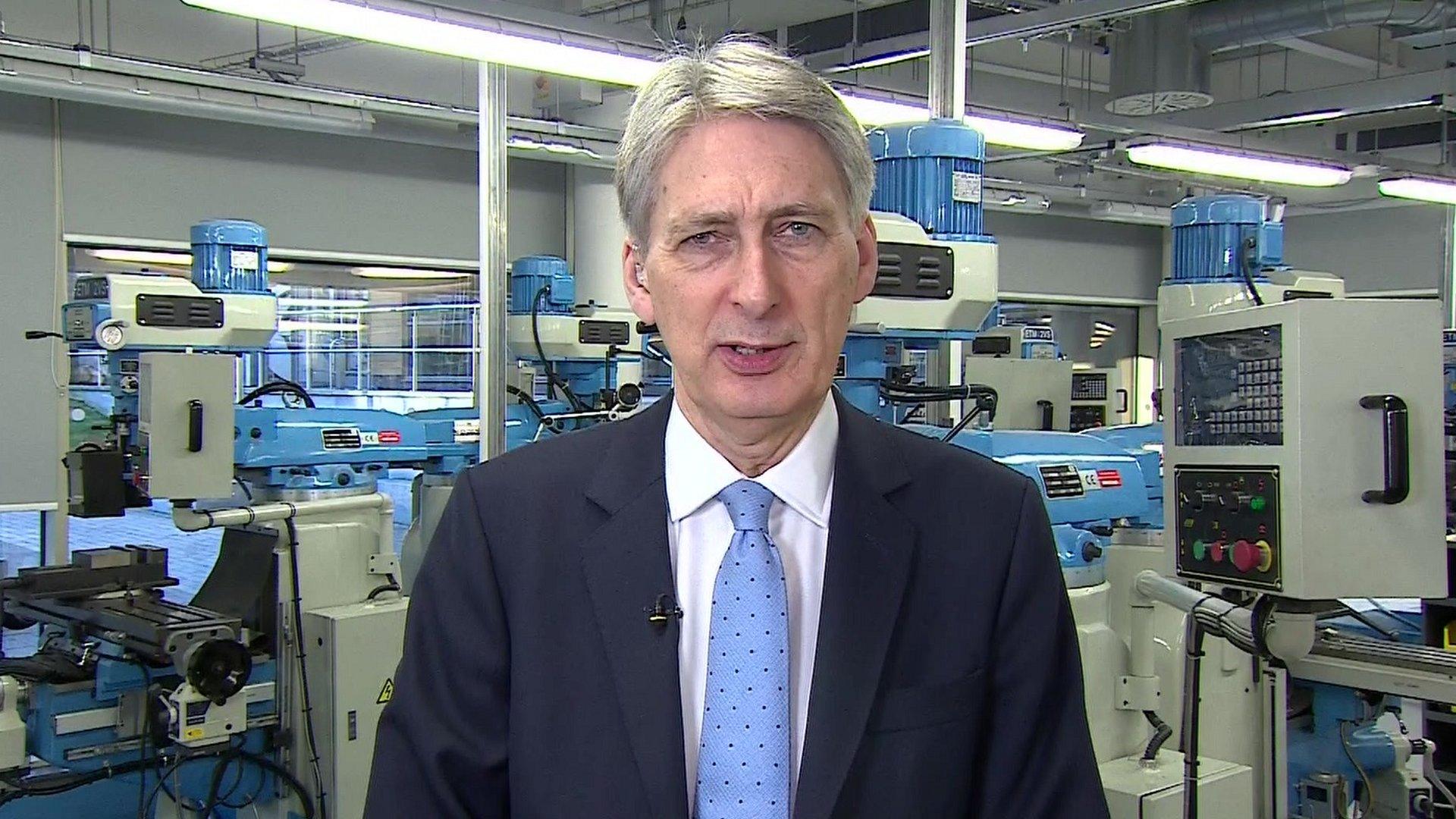
- Published8 March 2017

- Published8 March 2017
